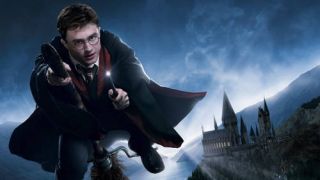Creativity
Watching “Harry Potter” Enhances Creativity
Magic and fantasy get you out of a rut.
Posted October 31, 2013

Halloween, with its witches and ghouls and talking foxes, might just be the most creative day of the year.
“Magic—the very word seems to reveal a world of mysterious and unexpected possibilities!” the Polish anthropologist Bronislaw Malinowski wrote in 1925. Magical phenomena, by definition, are impossible in the real world. Inanimate objects coming to life, people casting spells, being literally possessed to sing "Day-O." In the realm of fantasy, constraints are broken and nearly anything can happen.
Creativity is also about breaking constraints. Even if your idea doesn’t cross the borders of the possible, it’s at least crossing the borders of the typical. And so you might wonder whether a mental visit to a magical place would free your mind to think more creatively. The psychologist Eugene Subbotsky certainly has, and he’s done research to find out.
Subbotsky and his colleagues at Lancaster University conducted experiments with 4-year-olds, 6-year-olds, and 8-year olds. First the children took part of the Thinking Creatively in Action and Movement test (TCAM). This test challenges subjects to perform activities such as finding alternate uses for a plastic cup. The 6- and 8-year-olds also performed a drawing task in which they had to think of and sketch nonexistent objects—imaginary houses, cars, animals, etc.—which were rated for creativity.
In a second session, the children watched 15-minute films. Half watched clips from Harry Potter and the Philosopher’s Stone that included talking animals, flying brooms, and the use of spells and wands. The other half watched clips from the same film that included no magic. Afterward, the children performed more tasks from the TCAM and drew additional nonexistent objects.
Subbotsky and colleagues found that watching the magical clips increased children’s performance on the creativity tests more than watching nonmagical clips did. Hypothesis confirmed.
The authors write, “magical thinking provides multiple unrealistic (supernatural) solutions to realistic problems (i.e., one can move from one place to another by using a broomstick, a magic carpet, or a dragon).” So maybe watching a little Harry Potter before problem solving will free you from the bounds of reality. Some solutions, though seemingly unrealistic, might turn out to be realizable. As Arthur C. Clark would have noted, half the crap we have sitting on our desktop right now—computers, phones, erasable pens(!)—would have seemed like magic to someone of another era. And we may not have flying broomsticks (yet), but we have something almost as good: robotic vacuum cleaners.


